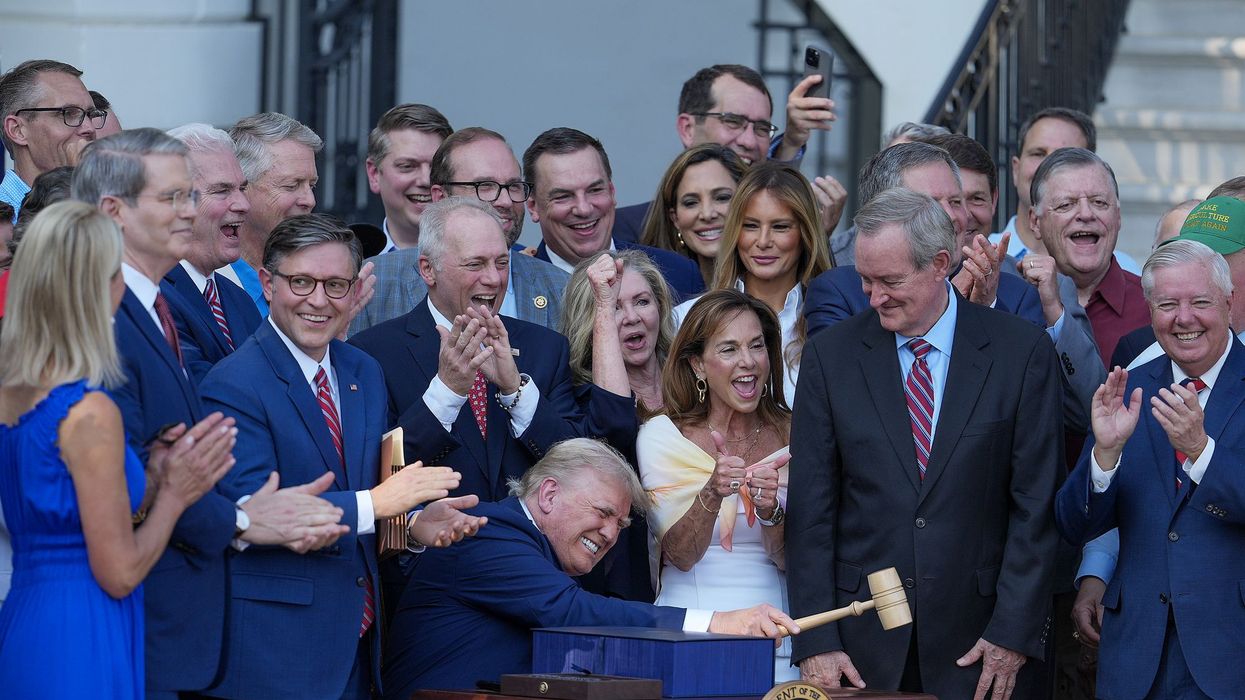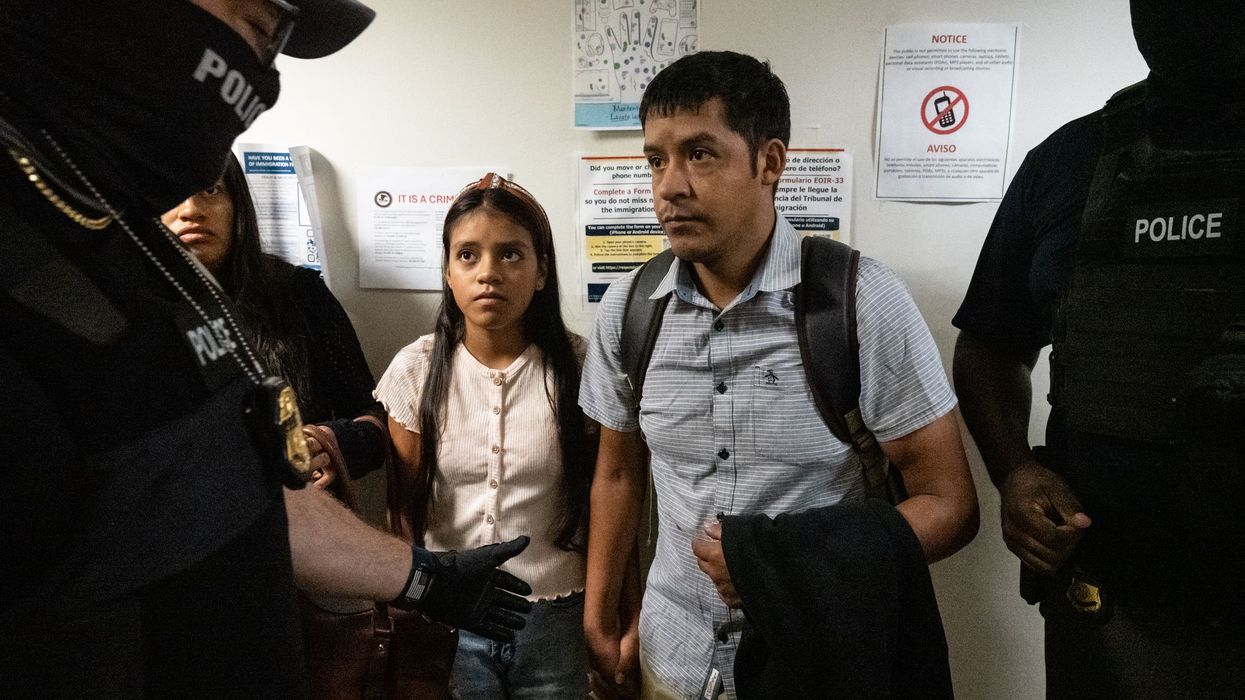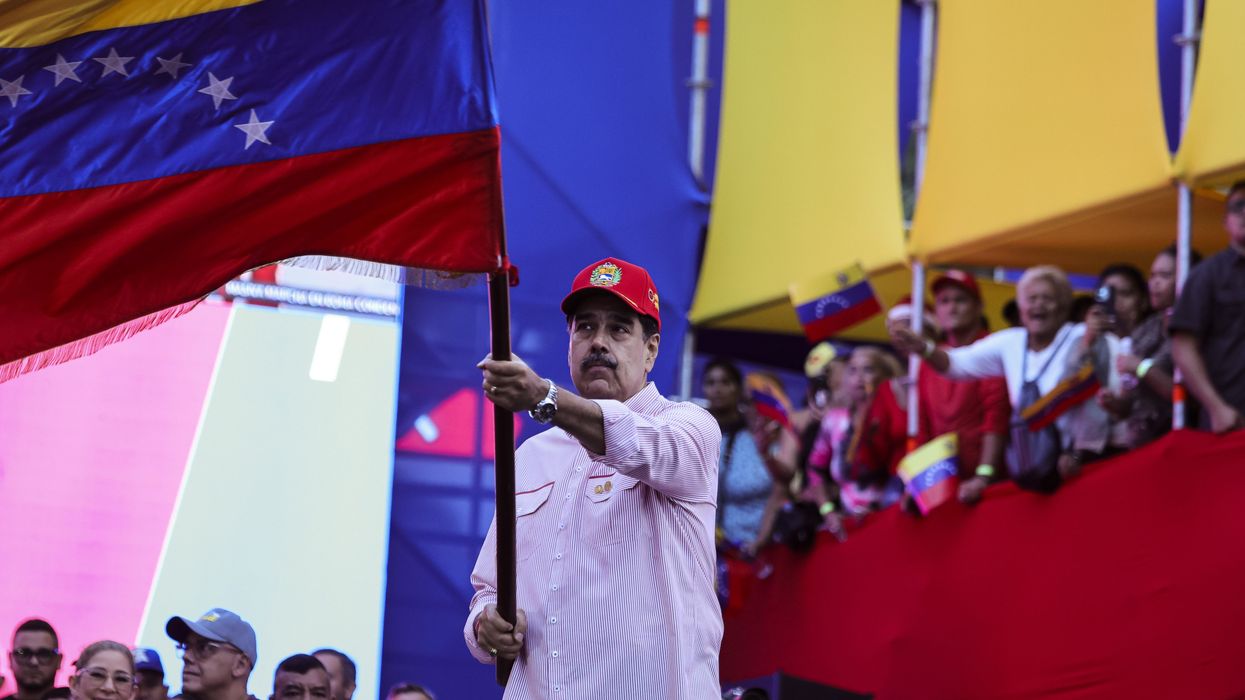August, 25 2009, 03:50pm EDT

For Immediate Release
Contact:
Dan Beeton, 202-239-1460
US Continues to Provide Honduran Regime With MCC Aid Money, Despite Having Cut Off Other Countries Following Coups
WASHINGTON
The U.S. continues to provide the coup regime in Honduras with tens of
millions of dollars in aid money through the Millennium Challenge
Corporation (MCC), despite having cut off MCC assistance to Mauritania
and Madagascar following coups d'etat in those countries, the Center
for Economic and Policy Research (CEPR) describes in a new issue brief.
The brief notes that while the U.S. suspended MCC money within days
following coups in both Mauritania and Madagascar, MCC commitments in
Honduras, worth more than $190 million, have not been put on hold after
over 57 days following the coup. The U.S. also cut MCC aid to Nicaragua
this year following what the U.S. alleged were electoral irregularities
in municipal elections.
"There
appears to be a double standard regarding MCC assistance following
coups," CEPR Co-Director Mark Weisbrot
said. "It is unclear why the U.S. has not cut MCC funds to Honduras,
considering its stated opposition to the ouster of President Zelaya and
its stated intentions to pressure the coup leaders."
There has been growing pressure on the Obama administration to enact
further sanctions on the regime. On August 7, 16 Democratic members of
Congress wrote
President Obama urging him to freeze the assets of coup leaders and
deny them entry into the U.S. The administration has not responded to
the letter, nor has it made a legal determination as to whether a coup
d'etat took place in Honduras, almost two months after Honduran
military forces broke into President Manuel Zelaya's home and rousted
him from his bed at gunpoint before flying him out of the country. A
legal determination that these events did constitute a coup would
trigger a suspension of aid under the Foreign Assistance Act.
"This has been a violent coup, with a wave of repression including assassinations of Zelaya supporters, beatings and physical assaults,
mass detentions, and attacks on media outlets critical of the coup,"
Weisbrot said. "The U.S. government could quickly end the coup with
serious economic pressure, but it hasn't even frozen the coup leaders'
assets."
The MCC is a U.S.
government-run corporation created in 2004 and tasked with managing the
Millennium Challenge Account (MCA), a fund whose mission is to provide
development assistance to low-income developing countries. A country's
eligibility to receive assistance from the MCC is based on a series of
"selection indicators" related to "Ruling Justly", "Investing in
People" and "Economic Freedom". Its board of directors is chaired by
the U.S. Secretary of State and includes cabinet officials such as the
Treasury Secretary and the U.S. Trade Representative, who oversee
stewardship of the MCA.
The brief notes that the MCC froze all assistance to Nicaragua
following alleged irregularities in its November 9, 2008 elections.
Secretary of State Hillary Clinton then announced in June that the MCC
would terminate all but one of the Nicaragua programs, costing
Nicaragua $62 million.
The full issue brief can be found here.
The Center for Economic and Policy Research (CEPR) was established in 1999 to promote democratic debate on the most important economic and social issues that affect people's lives. In order for citizens to effectively exercise their voices in a democracy, they should be informed about the problems and choices that they face. CEPR is committed to presenting issues in an accurate and understandable manner, so that the public is better prepared to choose among the various policy options.
(202) 293-5380LATEST NEWS
GOP Spending Law Gives Corporations $16 Billion in Retroactive Tax Breaks: Analysis
“You cannot change what a company did in the past, so that half-year of retroactive effect of the provision is just a windfall to companies," said one critic.
Dec 02, 2025
Corporations are likely to claim $16 in fresh tax breaks on expenditures made before the passage of the budget legislation signed earlier this year by US President Donald Trump, according to an analysis by a nonpartisan congressional committee released Tuesday.
The analysis by the Joint Committee on Taxation (JCT)—a panel composed of five members each from the Senate Finance Committee and House Ways and Means Committee—came in response to a September query from Sen. Elizabeth Warren (D-Mass.) regarding the One Big Beautiful Bill Act's (OBBBA) extension of full bonus depreciation, a tax-savings tool allowing businesses to automatically deduct costs of qualifying assets.
As Warren explained in her letter, full bonus depreciation enables corporations "to immediately deduct some or all of the cost of new business investments, such as the purchase of manufacturing equipment, software, and furniture, rather than deducting those costs over the estimated lifetime of those assets."
"This policy was first implemented in 2010 as an intended temporary economic stimulus in the aftermath of the Great Recession, and Congress allowed it to expire the following year," Warren noted.
"However, President Trump’s 2017 tax law reinstated 100% bonus depreciation from 2018 through 2022 in what amounted to a massive corporate giveaway," the senator continued, highlighting nearly $67 billion in tax savings for more than two dozen corporations including Google, Facebook, UPS, and Target.
"And after extensive lobbying from billionaire-funded right-wing lobbying groups, the OBBBA reinstated 100% bonus depreciation permanently to the tune of hundreds of billions of more dollars over the next decade," Warren added.
Applying retroactively to capital expenditures since January 19, corporate tax deductions under the OBBBA's reinstatement of the full bonus depreciation will cost $16 billion in lost federal revenue, according to the JCT's analysis. The tool has been hailed as game-changer for Bitcoin miners, who can write off 100% of hardware costs in the year of purchase.
The OBBBA provision allows firms to use the deduction to write off certain qualifying business-related properties, such as corporate jets. Meanwhile, millions of lower-income US households are suffering from the law's unprecedented cuts to vital social programs including Medicaid and the Supplemental Nutrition Assistance Program.
While proponents of the full bonus depreciation argue that large corporations benefit most from the tool because they make up the lion's share of investments, critics point out that such breaks are generally poor investment incentives because they are applied after companies have already made their spending decisions.
“Thanks to Donald Trump and Republicans’ Big Beautiful Bill, giant corporations will win big while American families see their costs skyrocket," Warren said Tuesday in response to the JCT analysis. "Next year, the federal government will spend over five times more on these tax handouts for billionaire corporations than it spends each year on childcare."
"Time and time again, Donald Trump and Republicans have made clear that they stand with billionaires and billionaire corporations—not American families," she added.
Numerous corporations taking advantage of the full bonus depreciation have paid effective federal corporate tax rates far below the statutory 21%, according to a 2023 analysis by the Institute on Taxation and Economic Policy (ITEP).
One tax expert called the deduction "a cheat code to saving millions in taxes," as thousands of companies have dodged paying their fair share by effectively reducing their income to zero, or even making it negative.
As Warren noted Tuesday, "over 80% of the 100% bonus depreciation claimed by corporations from 2018-22 went to companies with over $1 billion in yearly income," while "99% of bonus depreciation benefits went to corporations making over $1 million annually."
ITEP federal policy director Steve Wamhoff told the Washington Post Tuesday that “it is quite obvious that if an incentive is retroactive, it is not actually an effective incentive."
“You cannot change what a company did in the past, so that half-year of retroactive effect of the provision is just a windfall to companies," Wamhoff added. "That part is just ridiculous.”
Keep ReadingShow Less
'Monday Afternoon Massacre': Trump Fires 8 Immigration Judges in NYC
"The goal is to transform an imperfect system which aimed for fairness into a rubber stamp mill, leaving only the 'deportation judges' they want," said one policy expert.
Dec 02, 2025
As the Trump administration intensifies a push to hire what officials call "deportation judges," eight judges were fired Monday from the New York City immigration court that's become the epicenter for anti-immigrant enforcement in the city.
The National Association of Immigration Judges, the union that represents judges who handle immigration cases, confirmed to the New York Times that the eight officials had been dismissed in what one recently fired judge described as a "Monday afternoon massacre."
"The court has been basically eviscerated,” said former Judge Olivia Cassin, who presided over another immigration court in New York City until being fired in November, told the Times.
The judges who were dismissed Monday had worked at the immigration court at 26 Federal Plaza, where the city's US Immigration and Customs Enforcement (ICE) offices are also located.
The building has been the scene of harrowing ICE arrests in recent months, with an agent throwing an asylum-seeker to the ground in September as she pleaded with him not to detain her husband, and masked officers arresting NYC Comptroller Brad Lander in June when he tried to offer assistance to an immigrant.
The immigration court at 26 Federal Plaza employs 34 judges. Nearly 100 immigration judges have now been fired across the US this year.
Among those dismissed on Monday was Judge Amiena A. Khan, who served as the assistant chief immigration judge and supervised other jurists.
The Transactional Records Access Clearinghouse found that from 2019-24, Khan ruled on 620 asylum cases and granted asylum to 544 applicants. Cassin decided on 669 asylum cases from 2020-25 and granted asylum to 582 people. Immigration judges across the country denied asylum to refugees more frequently than Khan and Cassin over those same periods, according to TRAC.
After Monday's dismissals were announced, American Immigration Council senior fellow Aaron Reichlin-Melnick posited that "the Trump administration is systematically firing immigration judges across the country for no reason other their above-average grant rates."
Last week, the US Department of Homeland Security (DHS) posted on social media a call for legal professionals to join the Justice Department as "a deportation judge to defend your community."
"End the invasion," urged DHS.
David Bier, director of immigration studies at the libertarian Cato Institute, said the Trump administration appears to want "to poison the applicant pool."
"The job of an immigration judge isn’t to 'end the invasion,'" said Bier. "It is to evaluate whether someone is eligible for relief from deportation under civil immigration law."
Immigration attorney Allen Orr said Tuesday that if an administration's goal is to "improve vetting, you don't fire eight immigration judges in NYC—the epicenter of the national backlog."
Such mass firings are done, he said, "to stall the system, punish immigrants, and create crises. Dismantling is deliberate, not security."
On Monday, former Chicago immigration Judge Carla Espinoza described to Al Jazeera how she was abruptly fired from her courtroom position in July.
The judges who have been fired this year include "attorneys who previously represented immigrants or provided pro bono help to immigrants before they became a judge," she said.
In this episode of #UNMUTE, former US immigration judge Carla Espinoza discusses the wave of firings of judges under the Trump administration. pic.twitter.com/HhT1jhxhzt
— Al Jazeera English (@AJEnglish) December 1, 2025
"For the first time," said Espinoza, "we're seeing a clear indication that there's an expectation that we do things a certain way, that we rule on motions in cases before us a certain way, that we rush through cases, which is something we've never heard before."
Keep ReadingShow Less
Maduro Vows Venezuela Will Be a 'Colony Never Again' as Trump Intensifies Threats
He has described President Donald Trump's push for regime change as a "colonial threat" to "seize" Venezuela's oil.
Dec 02, 2025
Venezuelan President Nicolás Maduro remained defiant on Monday as US President Donald Trump plotted "next steps" against the South American nation with top national security brass.
Before thousands of Venezuelans at a rally in Caracas, the nation’s embattled president said he would not accept peace on US terms unless it came “with sovereignty, equality, and freedom.”
“We do not want a slave’s peace, nor the peace of colonies! Colony, never! Slaves, never!” he said.
The speech came days after Trump announced that the US would close Venezuelan airspace, which many interpreted as a final step before a series of strikes on the mainland.
The US has framed its military buildup in the Southern Caribbean as part of a campaign to stop drug smuggling, the same justification it has used to carry out the extrajudicial bombings of more than 20 boats in the region—which have killed at least 83 people—while disclosing zero proof of the victims' involvement with drug trafficking.
Trump has also accused Maduro of being the leader of the so-called "Cartel de los Soles," which he slapped with the label of “Foreign Terrorist Organization” last month, even though it is not an "organization" at all, but a media shorthand to refer to alleged connections between Venezuelan leaders and the drug trade.
Meanwhile, both US and international assessments have found that Venezuela is but a minor player in the global drug trade.
The US has amassed more than 15,000 troops outside Venezuela, the most it's sent to the region since 1989, when the administration of former President George H.W. Bush launched a land invasion of Panama to overthrow its drug-running dictator Manuel Noriega. Documents obtained by The Intercept last week suggested that the US seeks to maintain "a massive military presence in the Caribbean" for years to come.
"By a factor of at least 10, the US presence is too great for even an intensified anti-drug operation," wrote US national editor Edward Luce in the Financial Times on Tuesday.
Trump's motive for stopping drug trafficking was further called into question after he pardoned former Honduran President Juan Orlando Hernández, a onetime US ally who was sentenced last year to 45 years in prison for helping to traffic at least 400 tons of cocaine to the US. The pardon was issued as part of Trump's efforts to influence Honduras' upcoming election to secure the victory of right-wing candidate Nasry “Tito” Asfura.
The goal of regime change was essentially confirmed on Monday when Reuters reported that Trump had offered Maduro safe passage out of Venezuela if he were willing to abdicate power during a phone call on November 21.
“You can save yourself and those closest to you, but you must leave the country now,” Trump reportedly told Maduro.
Maduro reportedly said he'd be willing to accept the offer if his family members were granted complete amnesty and the US removed sanctions against them, as well as over 100 other Venezuelan officials. He also asked for the case against him before the International Criminal Court (ICC) to be dropped.
Trump rejected that deal, and his offer of safe passage expired on Friday, the day before the US announced it had closed Venezuelan airspace. Trump confirmed to the press on Sunday that the talks had happened, but provided few additional details.
Maduro has categorically denied involvement with drug trafficking and has portrayed the White House's sabre-rattling as a "colonial threat." Last week, while brandishing the sword of South American anticolonial hero Simón Bolívar, he pledged that Venezuela would be a "colony never again."
On Sunday, he accused Trump of trying to "seize" the nation's oil reserves. He has called for the Organization of the Petroleum Exporting Countries (OPEC) to step in to help the country counter what he said were “growing and illegal threats” from Trump.
Venezuela has the world’s largest proven oil reserves—about a fifth of the Earth’s total, and more than Iraq had at the time of the George W. Bush administration's 2003 invasion. However, US sanctions against Venezuela largely block American oil companies from accessing the reserves, which are controlled by the nation’s state-owned oil company Petróleos de Venezuela. These sanctions, which have limited Venezuela's ability to export its most valuable natural resource, are considered one of the primary reasons for the nation's economic instability in recent years.
While at a rally in 2023, Trump said he regretted not having "taken [Venezuela] over" during his first term. "We would have gotten to all that oil; it would have been right next door,” he said.
"We’ve seen this tragic play before," wrote Richard Steiner, a former marine professor with the University of Alaska, this weekend in Common Dreams. "The Bush administration justified its disastrous 2003 invasion of Iraq with the pretext that Iraq had weapons of mass destruction, which, as it turned out, it didn’t. And as US Central Command commander General John Abizaid admitted about the Iraq war at the time: 'Of course it’s about oil, it’s very much about oil, and we can’t really deny that.'"
"A similar pretext—this time 'drug interdiction'—is being used to justify a potential US invasion and regime change in Venezuela," he continued. "But this is not about stopping the flow of dangerous drugs, it is about actually increasing the flow of the dangerous drug some pushers want to keep us all hooked on—oil."
Keep ReadingShow Less
Most Popular


